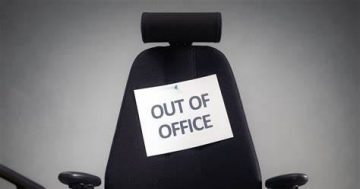
As a leader, your goal is not to eliminate stress, but to create conditions in which stress can serve as a performance accelerator for yourself and your team. Image: University of Buffalo.
Michelle Gibbings says finding the balance between mild stress that can stimulate innovation, and overwhelming stress resulting in burnout, should be the goal of every workplace leader.
When you reflect on your most recent working week, what part did stress play? Did it help or hinder your performance and progress?
Stress is often seen as the enemy of wellbeing, productivity, and creativity. It’s associated with burnout, disengagement, and feelings of overwhelm.
Yet, research suggests that not all stress is harmful. Indeed, stress can be good for us under the right conditions and when managed correctly. It can motivate, be a catalyst for growth, and a factor that contributes to your success.
For example, I’ve learned that if I am too relaxed before a public speaking event, I should worry. Why? Because it means I am not invested enough in the outcome.
Stress in those moments motivates and inspires me to do my best. So, the challenge for leaders is not to eliminate stress but to find the sweet spot where stress enhances performance without being overwhelming.
We all experience stress at times; it’s a natural reaction. Your brain detects what it sees as a threat, and your body’s natural defence mechanisms kick in.
Your heart rate elevates, and hormones like adrenaline and cortisol are released. These mechanisms are all designed to prepare you to confront that threat. In that context, stress is helping you be alert to the danger.
As Robert Sapolsky discusses in his book Why Zebras Don’t Get Ulcers, the physiological changes that occur when you confront a threat can feel uncomfortable, but they can also enhance alertness in situations requiring problem-solving.
Researchers and psychologists distinguish between positive stress (eustress) and negative stress (distress). Eustress is the type of stress that arises when you face challenges that push you beyond what feels comfortable, but still within your ability to manage. In this context, stress can improve focus and alertness, increase motivation, and
elevate creativity.
In contrast, distress occurs when the demands placed on you exceed your ability to cope, leading to feelings of helplessness, despair, and even anxiety and burnout. In this context, stress can impair cognitive performance and lead to emotional exhaustion and physical health issues.
So, with stress, it’s about finding the optimal level, what some call the ”Goldilocks zone” where your stress level is ”just right”. Too little stress, and we get bored and apathetic. Too much stress, and it’s overwhelming.
The zone of optimal performance where our stress levels are at the right level to improve our performance is described in the Yerkes-Dodson Law. It’s based on the premise that performance improves with increasing stress levels, but only up to a point. Beyond that point, performance deteriorates as stress becomes overwhelming.
It’s crucial to focus on your ability to manage and regulate stress so you can maximise its positive impacts.
As a leader, your goal is not to eliminate stress but to create conditions in which stress can serve as a performance accelerator for yourself and your team. Here are some ways to achieve this.
Set challenging yet achievable goals: Having goals can motivate people, but only when they feel achievable. You want the goal to be specific and clear.
Promote a growth mindset: Challenges that stretch your team members’ capabilities, such as new projects, can serve as opportunities for growth, skill development, and achievement.
Frame the tasks with a focus on learning opportunities and emphasise the support you will provide. To do this, you will want to foster a growth mindset in your team.
When employees view challenges as chances to grow rather than threats to their competence and performance, they are more likely to embrace the opportunity.
Lead by example: Role-model healthy stress management techniques, such as practising self-care, setting boundaries, and seeking help when needed.
Also, by celebrating efforts, focusing on learning rather than just outcomes, and providing constructive feedback that encourages development, you are role-modelling your growth mindset.
Build the structure: Flexible work schedules and remote-work options can help your team members better manage their stress by allowing them to balance work with personal responsibilities more effectively.
Build in reflection and check-in practices. That way, you regularly check in with your team members, and you know what’s going on.
Take the time to celebrate both small and large wins. You want to celebrate progress because that motivates people.
Foster autonomy: When people feel they have more control over what they do and how they do it, stress is less likely to feel overwhelming.
Consider how you can frame your team’s work and where there are opportunities for autonomy. You can get your team members to set their own priorities, expand their decision-making authority, and give them greater freedom in how they work.
Provide resources and support: Offer resources such as coaching, stress management workshops, access to mental health professionals, and employee assistance programs.
Encourage rest and recovery: You will want to ensure that your team takes regular breaks and has time to rest and recover.
Once again, this is where your role modelling matters. If you work long hours, never take a break, and are always ‘’on’’, your team members will find it more challenging to find their ‘’off” switch.
Stress is not a one-dimensional story. It has an upside and a downside.
The key is to recognise its motivation potential while actively managing how it unfolds at work to create a culture of resilience, happiness, health and progress with your team.
Michelle Gibbings is a Melbourne-based workplace expert and an award-winning author. She’s on a mission to help leaders, teams and organisations create successful workplaces – where people thrive and progress is accelerated. She can be contacted at [email protected].











